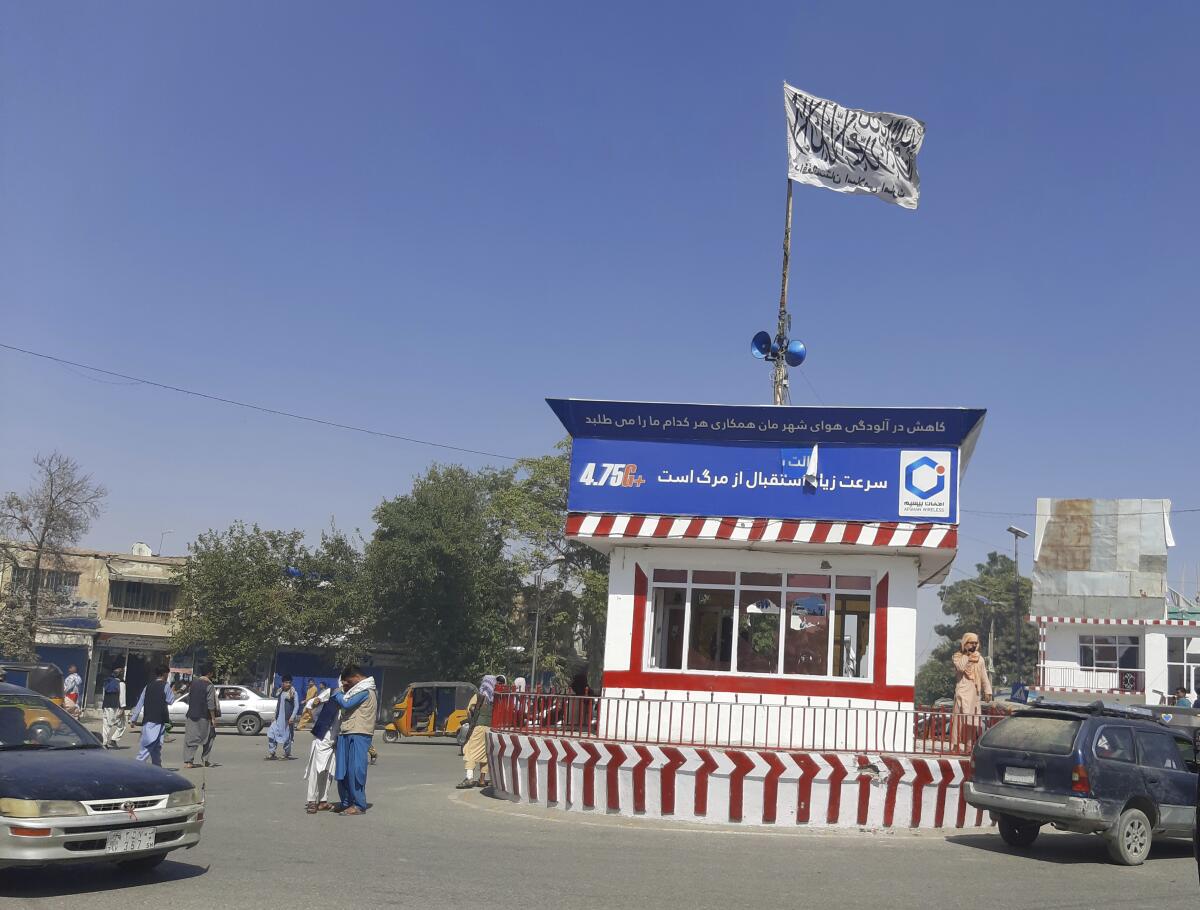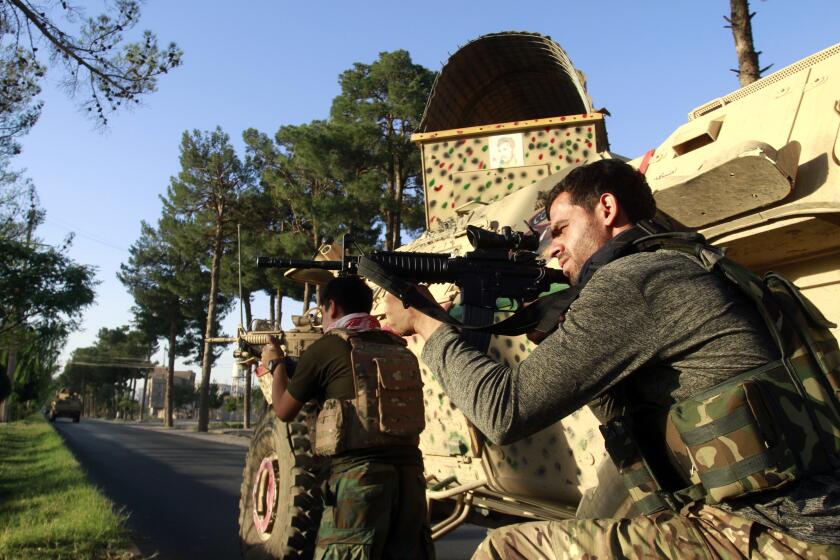Op-Ed: The Afghanistan blame game has begun

- Share via
As the Taliban captures one provincial capital after another in Afghanistan (18 in all so far), the wearisome but familiar Beltway parlor game of who “lost” the country — as if it were ever an American possession to begin with — has started. President Biden is most likely to be saddled with the blame for ordering a “precipitous” exit. Even former President Trump, who set the stage for a full exit and vowed to end the forever wars, now says that “it should have been done much better.”
Precipitous? Is this really an accurate characterization of a military campaign that has lasted close to 20 years and that cost close to $90 billion just to train the Afghan National Defense and Security Forces — and almost $2.3 trillion if all other costs are added in, including $815.7 billion in war-related and reconstruction expenses?
The Afghan army outnumbers the Taliban by at least 4 to 1. It has more firepower on the ground and, despite its limitations, an air force, where the Taliban has none. Nor has the Taliban benefited from the training and funding of any country with resources comparable to those of the United States. While in some ultimately captured places such as Lashkar Gah, capital of Helmand province, Afghan forces have fought back bravely under excellent leadership, elsewhere the army, police and local administrators have either fled or surrendered without a fight. The likelihood of the government retaking lost territory is therefore small at best.
The rapidity with which the Taliban captured places that have traditionally been the most hostile to them — such as Herat and Kunduz, because of their substantial non-Pashtun populations — has been particularly surprising. What remains to be seen is how quickly the north’s main city, Mazar-i-Sharif, will be overrun.
So the game seems to be up in Afghanistan. With the Taliban’s capture of Ghazni, about 90 miles from Kabul, the U.S.-backed Kabul Afghan government has been cut off from the south. And now that Aybak, capital of Samangan province, has also fallen, the connection between northern Afghanistan and the capital has also been severed.
We don’t know what the battle for Kabul will look like, whether the government’s defense of the city will be strong enough to prevent, or substantially delay, a complete triumph by the Taliban, which might open a path toward a political agreement. As things stand, the odds of the Taliban settling for anything less than full victory are slim.
Though some observers did say it was unavoidable, no one wanted the outcome we are now witnessing — on this the most ardent advocates of pressing on and the most fervent foes of persisting can agree.
But if an army that the United States has trained for so long and at such colossal expense collapses so quickly, critics of withdrawal are obliged to answer two questions that they habitually avoid or finesse with bromides: At what point would you be prepared to declare that the U.S. could withdraw without the risk of all of the dire consequences you are now watching unfold? Short of again significantly ramping up the number of U.S. troops, what do you propose to do in, say, the next five years that has not been accomplished despite two decades of effort?
No civilian expert (even some very smart ones) or the ex-general who has decried Biden’s decision to end the American war in Afghanistan has a convincing answer to either question. They pivot hastily to canned formulations about the importance of “staying the course,” preserving American “credibility” and so on. In short, their counsel amounts to this: We must keep doing what we’ve been doing, no matter that it hasn’t worked. It will work out eventually. This has been their refrain for years.
Advocates of withdrawal, for their part, need to be realistic and honest. A great deal of fighting and dying lies ahead in Afghanistan, and innocent people will suffer immensely. The Taliban’s rule will be cruel — it hasn’t reformed, its spin about protecting human rights notwithstanding. Many freedoms now enjoyed by Afghans, particularly well-educated urban professionals and above all the women among them, will be lost. Ethnic and religious minorities, notably the Hazaras of central Afghanistan, who are mainly Shiite Muslims, will be persecuted. The Taliban’s reign will be brutish and nasty, but not necessarily short.
No one who has followed the Taliban denies that its rule will be draconian, pitiless and intolerant. Those opposed to the Biden administration’s decision to withdraw are right to lament the future that awaits millions of Afghans, but they must also explain how long the United States would have needed to remain in Afghanistan to ensure a different, much better life for the country.
The American war in Afghanistan is about to end. But the war of words over “who lost Afghanistan” has barely begun.
Amid drumbeat of disaster, here is why the fall of Herat bodes especially ill for Afghanistan.
Rajan Menon is a professor of international relations at the Powell School, City College of New York and a non-resident fellow at the Quincy Institute.
More to Read
A cure for the common opinion
Get thought-provoking perspectives with our weekly newsletter.
You may occasionally receive promotional content from the Los Angeles Times.











